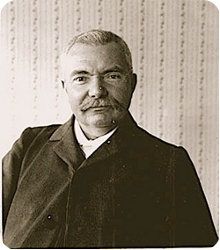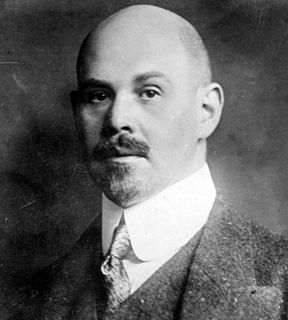A Quote by Walter Lippmann
In a free society the state does not administer the affairs of men. It administers justice among men who conduct their own affairs.
Related Quotes
Education is character development, harmonious completion of human personality. But what the state accomplishes in this field is dull drill, extinction of natural feeling, narrowing of the spiritual field of vision, destruction of all the deeper elements of character in man. The state can train subjects...but it can never develop free men who take their affairs into their own hands; for independent thought is the greatest danger that it has to fear.
When there exists anywhere a state of suffering, a wrong, a condition of affairs that men of feeling deplore and that troubles the conscience of the upright, to become resigned to it is wicked. Although the evil flaunts itself before our eyes, and no remedy is in sight, we must go and seek a remedy. In the creation of the God of Justice, evil can be but a transitory state.
In Stage I, divorces were not allowed, so men's [sexual] affairs did not put women's economic security in jeopardy; in Stage II, affairs could lead to divorce, so men's affairs did place women's economic security in jeopardy. We did not want political leaders who would be role models for behavior that would put women's economic security in jeopardy.
Anarchism may be described as the doctrine that all the affairs of men should be managed by individuals or voluntary associations, and that the State should be abolished..... Nor does the Anarchistic scheme furnish any code of morals to be imposed upon the individual. "Mind your own business" is its own moral law. Interference with another's business is a crime and the only crime, and as such may properly be resisted.
Three hundred men, who all know each other direct the economic destinies of the Continent and they look for successors among their friends and relations. This is not the place to examine the strange causes of this strange state of affairs which throws a ray of light on the obscurity of our social future.
We think that we live in a heterosexual society because most men are fixated on women as sexual objects; but, in fact, we live ina homosexual society because all credible transactions of power, authority, and authenticity take place among men; all transactions based on equity and individuality take place among men. Men are real; therefore, all real relationship is between men; all real communication is between men; all real reciprocity is between men; all real mutuality is between men.

































